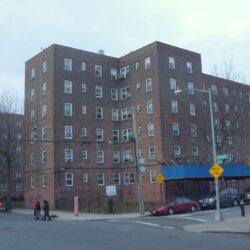
Mayor: We’ll Sidestep Teachers’ Union To Get School Cash
NEW YORK (AP) — Mayor Michael Bloomberg vowed yesterday to sidestep a labor dispute over teacher evaluations and form “school-based committees” to evaluate teachers at 33 struggling schools — and fire up to half of them.
Bloomberg said he can make the move under a school turnaround provision authorized by federal and state law.
“This year, we’ll do more to make sure every classroom has an effective teacher — and to remove those who don’t make the grade,” he said in his annual State of the City speech.
Speaking at a Bronx high school that was broken up into several small schools under one of his education initiatives, Bloomberg also promised $20,000 raises to good teachers and offered to lure “top-tier” college graduates to the teaching profession by paying off their student loans.
The plan to sidestep the United Federation of Teachers over evaluations was a bid to salvage up to $60 million in school improvement grants targeted to the 33 struggling schools. The city and the UFT are at an impasse over differences including due process protections for teachers who receive low ratings.
“We’re not going to accept that,” the mayor said. “And we’re not going to allow ineffective teachers to remain in those 33 schools or in any school.”
Bloomberg said that under a plan consistent with the existing union contract, the city can form school-based committees to evaluate teachers on merit and replace up to half of the faculty in those schools.
“Under this process, the best teachers stay; the least effective go. And now, that is exactly what will happen,” he said.
UFT President Michael Mulgrew accused Bloomberg of “teacher bashing” and said the mayor lacks the authority to set up the school-based committees and start evaluating teachers.
“The mayor knows perfectly well that under state law these kinds of initiatives have to be negotiated with the union,” Mulgrew said.
Bloomberg said he would offer $20,000 raises to teachers who are rated highly effective for two consecutive years. He said the raises will go a long way toward attracting and keeping good teachers.
“Historically, teachers unions around the country have opposed rewarding great teachers through merit pay, but more and more teachers are asking why, and we’ve seen how well this can work in other cities,” he said.
He promised to help new teachers join the profession by helping to pay off their college loans. Bloomberg said that if college graduates in the “top tier” of their class come teach in the city’s public schools — and if they commit to stay — the city will pay off up to $25,000 of their student loans.
“The burden of paying back college loans can sometimes lead top-level students to cross teaching off their list of possible careers,” Bloomberg said. “But we need their talents in our classrooms.”
Mulgrew said merit pay for individual teachers “has been disastrous” in other districts, but he said he found the idea of paying off loans to recruit teachers “very promising.”
After a year in which Occupy Wall Street protesters placed economic inequality at the forefront of the city’s public dialogue, Bloomberg acknowledged that many New Yorkers struggle to pay for housing and have faced a rising cost of living.
“There’s one thing that in all fairness hasn’t gone up: the ability of those at the bottom of the economic ladder to pay for those essential needs,” he said.
The mayor, who has staunchly opposed a measure being considered by the City Council that would require all employees at city-subsidized developments to be paid $10 per hour or more, said he would join state Assembly Speaker Sheldon Silver to push for a statewide increase in the minimum wage.
And while he praised the New York Police Department, Bloomberg said he would increase the lawyer staffing to the Commission to Combat Police Corruption. The announcement followed a year in which the NYPD has faced a number of public-relations challenges — among them an investigation into ticket-fixing by officers that led to at least 15 people being criminally charged.
The Commission to Combat Police Corruption was formed in 1995 and is designed to provide independent oversight of the NYPD.
Robert Gangi of the Police Reform Organizing Project at the Urban Justice Center called the plan to beef up the commission “a weak attempt to deflect the recent serious criticism about unjust, aggressive and racially biased police practices in the city.”
His organization opposes police “stop-and-frisk” practices that critics say target black and Latino New Yorkers.
In his speech, Bloomberg proposed a host of economic development programs meant to bring investments, businesses and visitors to neighborhoods throughout the city’s five boroughs.
With Wall Street facing a potentially shaky time, New York is particularly invested in continuing to expand the number of tourists who bring their money to the city. In December, the yearly visitor count surpassed 50 million for the first time, and in his speech the mayor said he would work with U.S. Sens. Charles Schumer and Kirsten Gillibrand to make it easier for would-be visitors from growing markets like India, China and Brazil to get visas.
The mayor said the city would pay for the initiatives announced yesterday in part through the sale of three office buildings in lower Manhattan — a move expected to bring in $100 million in the short-term future and millions more through long-term tax revenue and cost savings.
Leave a Comment
Leave a Comment


